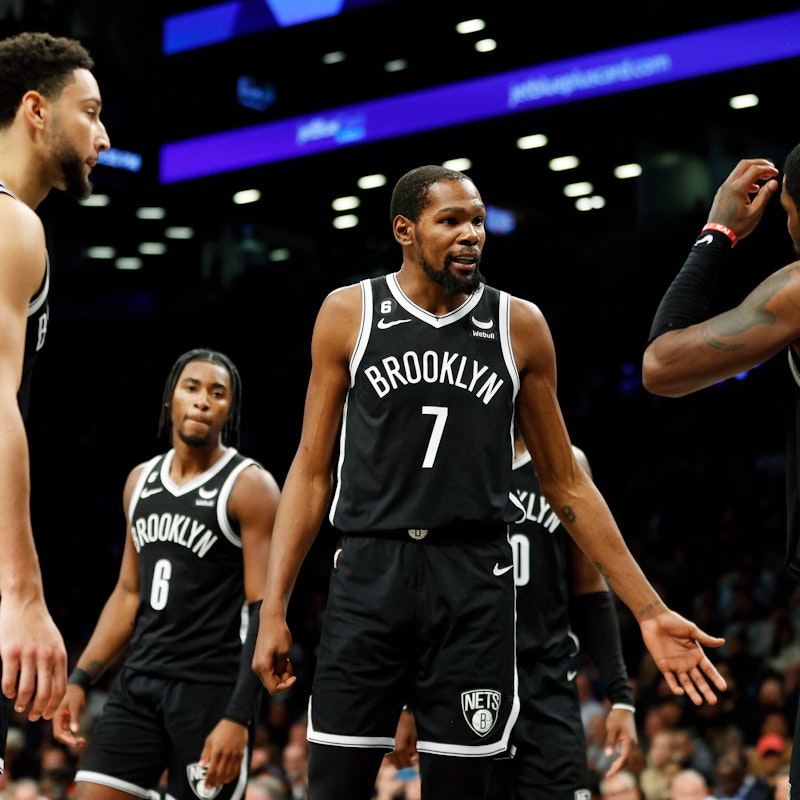In Ancient Greece, Nike was known as the goddess of victory. Through constant competition, our culture glamorizes the hustle in modern life. We live through games, winning is a drug. Teach the game of Uno to a kindergartener and you'll get this.
As basketball fans, what are we watching? Are we seeing five people on one team and five people on another team, running around on a basketball court, getting together to dig, defend, share the ball and outscore their opponents? Those of us who’ve played the game may watch it through the lens of our experiences. Those who haven't, may watch it as pure entertainment. We subconsciously follow the ball (try watching a game by following off-ball movement) and the ways in which teams organize their offense to score. Some focus on individual players, attaching to them as non-basketball-players. The camera pans from Jayson Tatum to his mother and his son, Deuce, attending every home game. We’re humans watching other humans, but the NBA is marketed as a superstar-driven league, and the dominant players usually drive winning.
However, as seen this season with the splitting up of the Brooklyn Nets, top-heavy rosters built around superstars often fail, sometimes spectacularly. We measure the game by scoring points, and after a few hours we arrive at the most psychologically satisfying aspect of games—games end. One team wins and one team loses, but on social media, we focus on highlight plays, smack talk, transactions and rankings. Which brings us to the NBA's MVP debate.
We mythologize athletes. Fandom has always provided a way for humans to talk about something other than their own lives. Instead of going in and exploring ourselves, or sharing our lives with the other humans we love, and instead of defining and making sense of complicated emotions or interpersonal dramas, we focus on the games. I love the games, too. What I don't love is how so much of the internet content is focused on the cynical, selfish and reductive arguments about who’s the most valuable player in the game. There can only be one. And the implication is that you have to pick one and then defend that choice and shout down anyone who has a different choice. Shouting with analytics has become trendy throughout every industry—proving your argument with numbers, certain metrics that may illuminate previously underappreciated aspects of the game, but diminish other areas.
The underlying issue remains: we only have a problem to shout about because as fans, we’re conditioned to have an opinion about who’s the best. From barbershops to college dorms, to barstools, to people at home texting on their couches, we’re supposed to fight for our guy, the one we like the best, or have chosen as the most dominant player. Broadening the lens, there’s the increasingly ubiquitous betting industry, preying upon the targeted younger fan demographic (FanCruel, Draft Flings, Cryptobang!) that can now legally wager $100 over their genius phone on an individual player in October, hoping to win $1000 in June.
Instead, I'm going to imagine an NBA with no MVP awards. With no idiotic commentary. I'll watch the game, sometimes on mute. I'll encourage my daughter to love the game itself. To cheer for the team I've been emotionally invested in since I was her age. I'll eagerly anticipate the arrival of the playoffs in April. I'll stay up too late watching the games, allowing myself to surf the tumultuous seas of victories and losses. That's why I'll keep watching the games.

